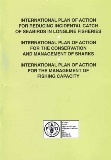Публикации
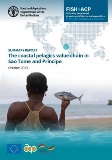
The coastal pelagics value chain in Sao Tome and Principe
2023
This report presents the results of the value chain analysis of the coastal pelagics value chain in Sao Tome and Principe conducted from 2021-2022 by the value chain development programme FISH4ACP. This report contains a functional analysis of the value chain, assesses its sustainability and resilience, develops an upgrading strategy and an implementation plan to which FISH4ACP will contribute.
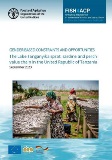
The Lake Tanganyika sprat, sardine and perch value chain in the United Republic of Tanzania: Gender-based constraints and opportunities
2023
This report presents the results of the value chain analysis of the Lake Tanganyika sprat, sardine and perch value chain in The United Republic of Tanzania conducted from 2021-2022 by the value chain development programme FISH4ACP. This report contains a functional analysis of the value chain, assesses its sustainability and resilience, develops an upgrading strategy and an implementation plan to which FISH4ACP will contribute.
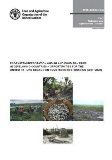
Ecosystem restoration and inland food fisheries in developing countries
2023
The review presents the strong business case for inland food fisheries in developing countries to be either a co-benefit, or very often the main benefit, of ecosystem restoration. In view of the current state of inland water aquatic habitats the potential for restoration is high. Realizing this potential requires concerted action to overcome current challenges, foremost of which is the invisibility of inland fisheries in many policy arenas as well as technical and scientific fora.
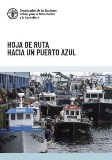
Roadmap to a Blue Port
2023
Roadmap to a Blue Port is intended to assist fishing ports to implement a Blue Transformation approach at strategic and operational level through the involvement of stakeholders, the implementation of projects and actions, and the measurement of impact.
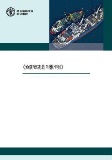
Добровольные руководящие принципы перегрузки
2023
Добровольные руководящие принципы, направленные на улучшение управления рыболовством, устанавливают правила контроля за перегрузкой рыбы, которая еще не была выгружена на берег, вне зависимости от ее обработки. Эти принципы дополняют существующие меры борьбы с незаконным, несообщаемым и нерегулируемым промыслом (ННН-промысел) и действуют в рамках международного права.
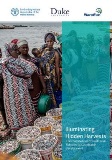
Illuminating Hidden Harvests
2023
Illuminating Hidden Harvests: the contributions of small-scale fisheries to sustainable development (hereinafter IHH) is a global study uncovering the contributions and impacts of small-scale fisheries through a multidisciplinary approach to data collection and analysis.
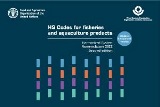
HS Codes for fisheries and aquaculture products. Harmonized System. Nomenclature 2022
2023
This publication, developed by the Food and Agriculture Organization of the United Nations (FAO), with the active support of the World Customs Organization (WCO), builds on the Harmonized System: Nomenclature 2022 edition. It presents all possible classifications for fisheries and aquaculture products by species, with a full description of each HS code, to facilitate its use within the fisheries sector, including aquaculture.
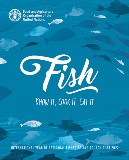
Fish: Know it, cook it, eat it
2022
Fish is crucial for global food security, providing vital protein for billions. It supports sustainable food systems and diverse culinary traditions worldwide. Learn about nutrition, avoid fish fraud, and understand environmental challenges through engaging content. Enjoy recipes from renowned chefs promoting zero waste and biodiversity.
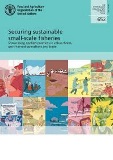
Securing sustainable small-scale fisheries – Showcasing applied practices in value chains, post-harvest operations and trade
2020
This document includes nine studies showcasing applied practices and successful initiatives in support of enhancing small-scale fisheries value chains, post-harvest operations and trade, based on the recommendations contained in the SSF Guidelines.
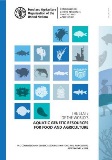
The State of the World's Aquatic Genetic Resources for Food and Agriculture
2019
The conservation, sustainable use and development of aquatic genetic resources (AqGR) is critical to the future supply of fish. The State of the World’s Aquatic Genetic Resources for Food and Agriculture is the first ever global assessment of these resources, with the scope of this first Report being limited to cultured AqGR and their wild relatives, within national jurisdiction.
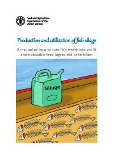
Production and utilization of fish silage
2018
The processing of fish leads to a significant removal of parts of the fish, such as heads, bones, guts, etc., these parts can represent between 30-70% of the fish. The fish silage process transforms fish waste into a liquid mix of hydrolysed proteins, lipids, minerals and other nutrients, easily digestible by both terrestrial and aquatic animals. It can also serve as an excellent fertilizer.
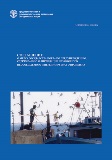
Cоглaшeниe o мepax гocyдapcтвa пopтa пo предупреждению, сдерживанию и ликвидации незаконного, несообщаемого и нерегулируемого промысла. Пересмотренное издание
2016
Соглашение о мерах государства порта по предупреждению, сдерживанию и ликвидации незаконного, несообщаемого и нерегулируемого промысла направлено на предупреждение, сдерживание и ликвидацию незаконного, несообщаемого и нерегулируемого промысла посредством принятия и осуществления эффективных мер государства порта в качестве средства обеспечения долговременного сохранения и устойчивого использования живых морских ресурсов.
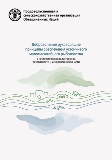
Добровольные руководящие принципы обеспечения устойчивого маломасштабного рыболовства в контексте продовольственной безопасности и искоренения бедности
2015
Настоящие Добровольные руководящие принципы обеспечения устойчивого маломасштабного рыболовства в контексте продовольственной безопасности и искоренения бедности разработаны в качестве дополнения к принятому ФАО в 1995 году Кодексу ведения ответственного рыболовства (Кодекс).
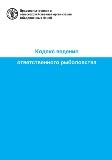
Кодекс ведения ответственного рыболовства
1995
С древних времен рыболовство было основным источником пищи для человечества и источником занятости и экономических выгод для тех, кто этим занимался. Богатство водных ресурсов считалось безграничным даром природы.

